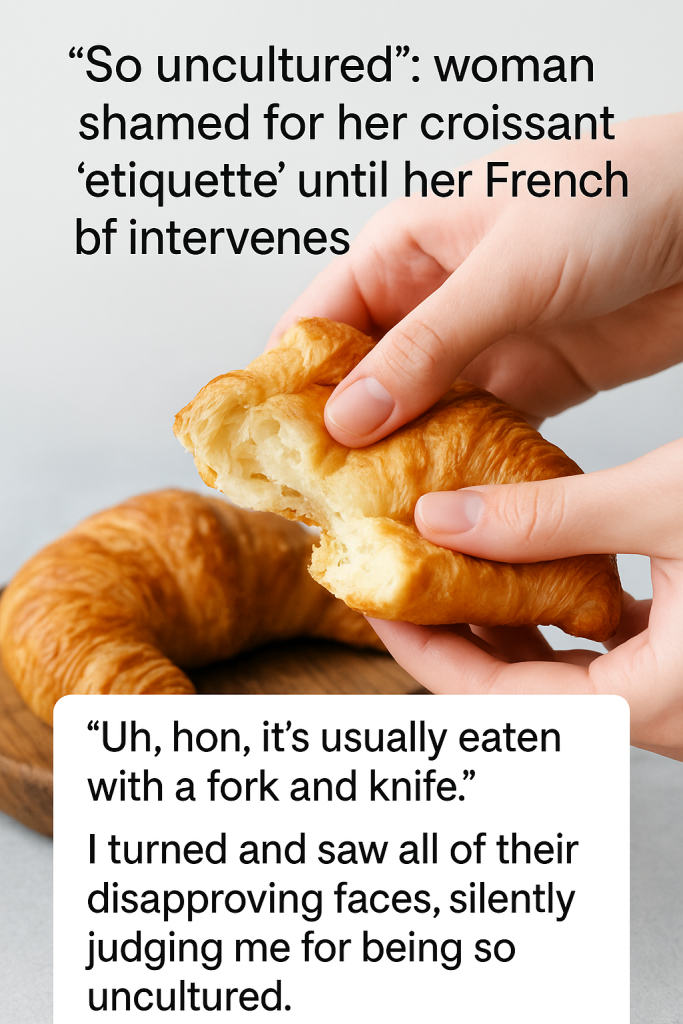A simple breakfast pastry has sparked an unexpectedly heated cultural debate online, after a woman was publicly shamed for her croissant “etiquette” — until her French boyfriend stepped in to settle the dispute.
The viral controversy began when an image posted on social media showed the woman enjoying a croissant in a way some labeled as “uncultured.” Critics argued that her approach to eating the iconic French pastry clashed with traditional customs, igniting a flurry of comments questioning her knowledge of French dining manners.
The photo was accompanied by a caption reading, “So uncultured,” and a cheeky remark that croissants are normally eaten with a fork and knife — a suggestion that quickly became the talk of social channels. Some commentators tied this critique to broader cultural norms, insisting that the proper etiquette is part of respecting French culinary traditions.
However, what could have been a straightforward food faux pas instead turned into an entertaining and educational moment when her French boyfriend intervened publicly. Defending his partner, he explained that croissant etiquette varies widely across France and beyond, and that strict rules about utensils are not universally observed.
“My love can eat her croissant any way she likes — there’s no single ‘correct’ way,” he wrote, adding that enjoying food should be about pleasure rather than rigid traditions. His perspective emphasized the evolving nature of cultural practices and encouraged a more relaxed approach.
This response resonated with many users, who appreciated the reminder that culinary customs can be flexible and personalized. The boyfriend’s comments highlighted that while certain habits, like using a fork and knife in a formal Parisian setting, exist, places and people vary in their customs.
Croissants, originally a Viennese invention refined in France, have become a global breakfast staple with diverse eating practices. In casual cafes and households worldwide, it is common to simply tear or bite them by hand, often accompanied by coffee. The insistence on cutlery is mostly linked to more formal dining or specific regional styles.
The incident sparked broader discussions about cultural gatekeeping and food etiquette, with many weighing in on how and why certain traditions become rigidly policed online. Social media users noted that food is often a deeply personal and cultural expression, and shaming someone for their eating habits can feel exclusionary or dismissive.
This viral moment also served as a reminder of the quirks and humor that arise when cultures meet in digital spaces — turning something as innocent as a croissant bite into a lively debate. Many found the boyfriend’s defense refreshing and heartwarming, highlighting how love and understanding can bridge cultural divides.
Ultimately, the story underscores a simple truth beneath the commotion: when it comes to enjoying food, there is room for all kinds of manners and none should be deemed “uncultured” for their style. Whether fork and knife or fingers and bite, the joy of a croissant is in the savoring, not the strictness of tradition.



